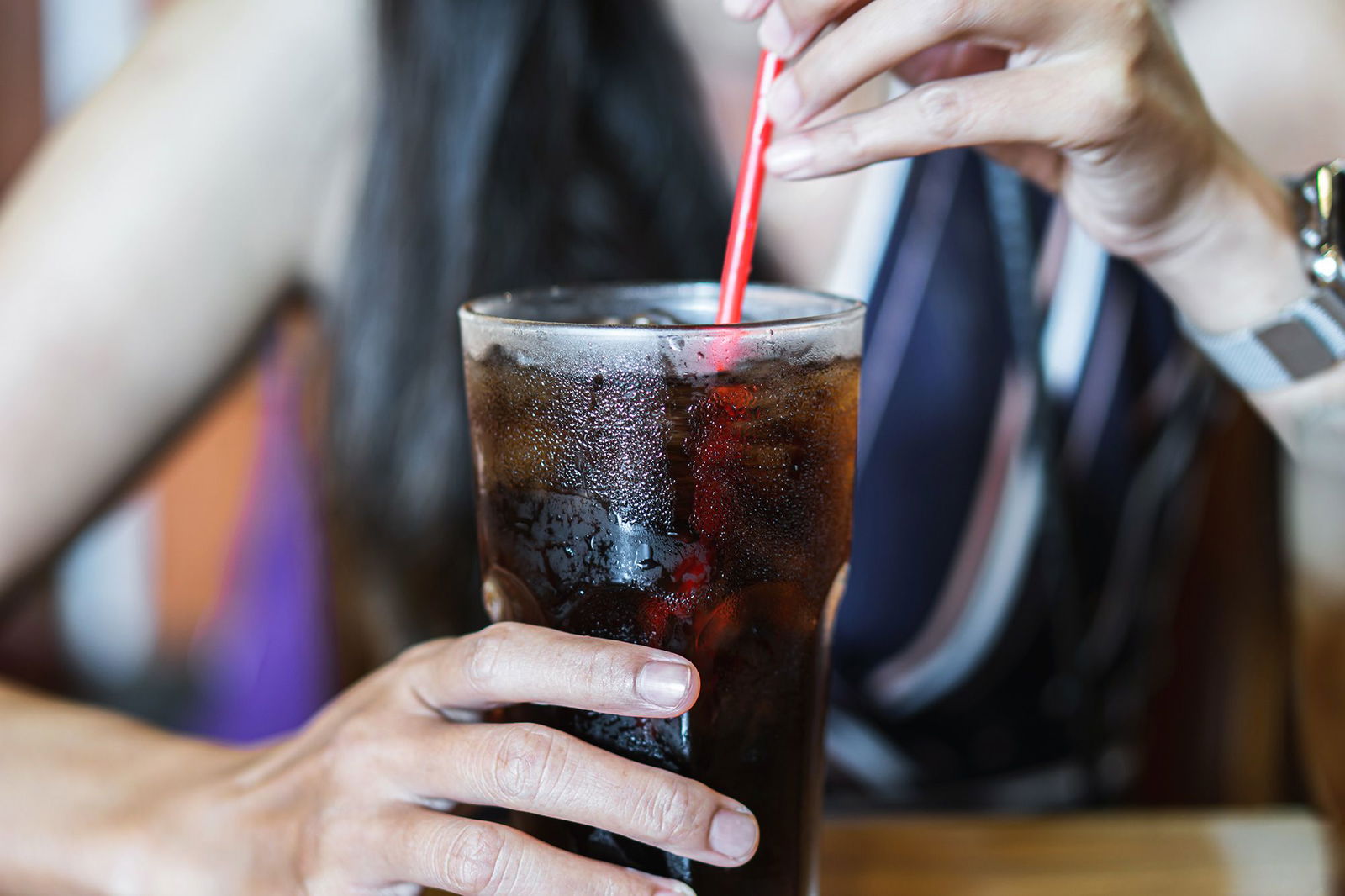Diet and sugary drinks raise risk of common liver disease by up to 60%, new research finds

Both diet and sugary drinks dramatically raise the risk of nonalcoholic fatty liver disease
By Sandee LaMotte, CNN
(CNN) — Drinking as little as one can of diet soda a day may increase the risk of nonalcohol fatty liver disease by 60%, while drinking a sugary beverage could raise the risk by 50%, a new unpublished study found.
Nonalcoholic fatty liver disease, or NAFLD, is a condition in which fat builds up in the liver of people who drink little to no alcohol. The damage can be similar to what’s seen in a heavy drinker and lead to cirrhosis — advanced scarring of the liver — as well as liver cancer.
The condition, which is also called metabolic dysfunction-associated steatotic liver disease, or MASLD, is one of the leading causes of liver cancer. It’s estimated that NAFLD has increased by 50% in the United States within the past three decades — today, some 38% of the population has the condition.
“Sugar sweetened beverages (SSBs) have long been under scrutiny, while their ‘diet’ alternatives are often seen as the healthier choice,” said lead study author Lihe Liu, a graduate student in the department of gastroenterology at the First Affiliated Hospital of Soochow University, in Suzhou, China.
“Our study shows that LNSSBs (low- or non-sugar-sweetened beverages) were actually linked to a higher risk of MASLD, even at modest intake levels such as a single can per day,” Liu said in a statement.
Consuming diet beverages was also linked to a higher risk of dying from liver disease, according to the abstract, a one-page summary of the paper before it is peer-reviewed and published in a journal. The research was presented Monday in Berlin at the United European Gastroenterology Week, an annual conference of the European Society of Gastrointestinal Endoscopy.
“These findings challenge the common perception that these drinks are harmless and highlight the need to reconsider their role in diet and liver health, especially as MASLD emerges as a global health concern,” Liu said.
How diet and sugary beverages affect the liver
The study followed nearly 124,000 people without liver disease participating in the UK Biobank, a large biomedical research study that follows people in the United Kingdom. The type and frequency of beverage consumption was assessed using 24-hour dietary questionnaires at various points throughout the 10-year study.
In addition to the connection between diet and sugar sodas and nonalcoholic fatty liver disease, the study found participants who substituted water reduced risk by nearly 13% for sugary beverages and over 15% for diet drinks. Switching from sugary drinks to diet drinks (or vice versa) did not lower risk.
The study provides “direct evidence of dietary behaviors influencing MASLD” and contradicts a prior analysis that found diet drinks could be substituted for water, said Sajid Jalil, clinical associate professor of gastroenterology and hepatology at Stanford University School of Medicine in California. He was not involved with the study.
“The study showed that both regular and diet soft drinks may harm the liver over time, while choosing water or unsweetened drinks could help protect it,” Jalil said in an email. “For me this study has a lot more weight than previous studies because of its prospective design, involving large number of subjects, validated test for the diagnosis of MASLD and a long follow up.”
Why would sugary and diet drinks have such an impact on the liver?
In sugary beverages, the higher sugar content causes rapid spikes in blood glucose and insulin, which can promote weight gain, Liu said. Excess sugar can also drive fat accumulation in the liver.
Although low in calories, diet drinks may still affect liver health through several pathways, she said.
“They can change the gut microbiome, interfere with feelings of fullness, increase preference for sweet foods and even stimulate insulin secretion,” Liu said. “Water, however, hydrates the body without affecting metabolism, helps with satiety and supports overall metabolic function.
“That’s why the risk reduction is similar no matter which sweetened drink is replaced — it shows that water is the healthiest default beverage.”
The-CNN-Wire
™ & © 2025 Cable News Network, Inc., a Warner Bros. Discovery Company. All rights reserved.


